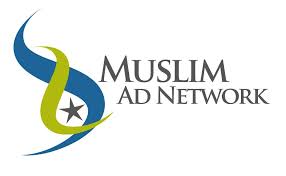
1 – Muslims are becoming more conscious of their Islamic identity
Gone are the days when young Muslim men and women idolized other cultures in order to feel good about themselves. There will always be exceptions but if you look around, you will see that young Muslims these days love being different from what the mainstream narrative dictates.
This has translated into a desire to consume products that reflect their Islamic identity. The rise and rise of modest fashion is a good example. According to Grand View Research, The global Islamic clothing market size was around 60 billion dollars in 2017.
2 – The Muslim population is very young
Out of the 1.6 billion Muslims around the world, about 66% are under the age of 30 says Shelina Janmohamed, author of Generation M. This is a segment of the Muslim population that is looking for brands that understand their values and look to fulfill their aspirations as Muslims. They are looking for brands that offer them a space to express themselves beyond the stereotypes.
This is an amazing opportunity for brands to tap into where the growth is going to be. As Shelina rightfully stated: “There is a segment of the world’s 1.6 billion Muslims that is more influential than any other and will shape not just the future of Muslims, but also the world around them”.
3 – Education and income is at the same level as others (western countries)
In 2018 Pew Research reported that there were 3.45 million Muslims in the United States compared to 2.35 million in 2007. This is not a large number but it is growing and its members are as well-educated and well-off as their compatriots from other faiths. Europe, however, has over 44 million Muslims and this number is growing steadily. Pew Research also reports that Muslims have the highest level of schooling where they are a religious minority. This, in turn, helps Muslims get better jobs and run strong businesses which in turn means more disposable income.
4 – More halal options for financing businesses
Experts around the world agree that the global Islamic finance market continues to grow. This is mainly because of the strong investments in the halal sectors. Investments are being directed towards tremendous growth opportunities in the promising Islamic sectors. Where there was hesitation for Muslim entrepreneurs to get financing to start a business or scale-up, there is now an opportunity through Halal financing.
Cision PR Newswire explains in its article Global Islamic Finance Market 2018-2019 & 2024:
“The industry’s total worth, according to key industry stakeholder organizations, across its three main sectors (banking, capital markets, and TAKFUL), was estimated to be USD 2.05 trillion in 2017, marking an 8.3% growth in assets in USD terms, and reversing the preceding two years of assets’ growth stagnation (2017: USD 1.89 trillion vs. 2016: USD 1.88 trillion)”.
5 – Mainstream brands continue to pave the way for small brands
In our past articles, we talked about how the Toronto Raptors partnered with Nike to create co-branded sports hijabs and Banana Republic starting to sell hijabs too. These big brands are actually opening up opportunities for smaller Muslim-owned brands to sell new products like sports hijabs. This is an example of a product that Muslims themselves had not really thought about producing and selling. And in all honesty, who would have cared to buy a sports hijab when they could just wear a regular hijab during sports activities. However, now that the likes of Nike have used their marketing resources to persuade the Muslim consumer that this is the way to do things right, many will be open to buying sports hijabs from smaller brands.
This is not always the case; for instance, with the burkini (halal swimsuit that covers the entire body and head), Muslim consumers were already buying from smaller, mainly Muslim-owned brands. However, for those Muslimas who are not yet convinced, the mighty powers of Nike marketing might just be what they need to decide to try one. This could be an opportunity for smaller brands to feed off the hype.
6 – Better audience-targeting through technology
Muslim businesses cannot rely on distributing flyers at the mosque or local madrassa to have a sustainable business. The good news is that they do not have to. There are enough tools on the web to help them advertise to millions of people around the world. However, the Muslim public is quite a unique and complicated audience to target effectively. No one wants to spend money on ads that may or may not work.
This is why a platform like Muslim Ad Network is crucial for Muslim businesses. It brings together brands and publishers together for mutual benefit. Brands can advertise on popular Muslim websites, presenting their products and services to a highly engaged audience. This way they do not have to hit and hope.
The first five points are external components that determine the positive picture ahead for you as a business owner. However, the last point is an internal component that needs you to take action. You can learn more about this opportunity by requesting contact with us at Muslim Ad Network (no strings attached).
